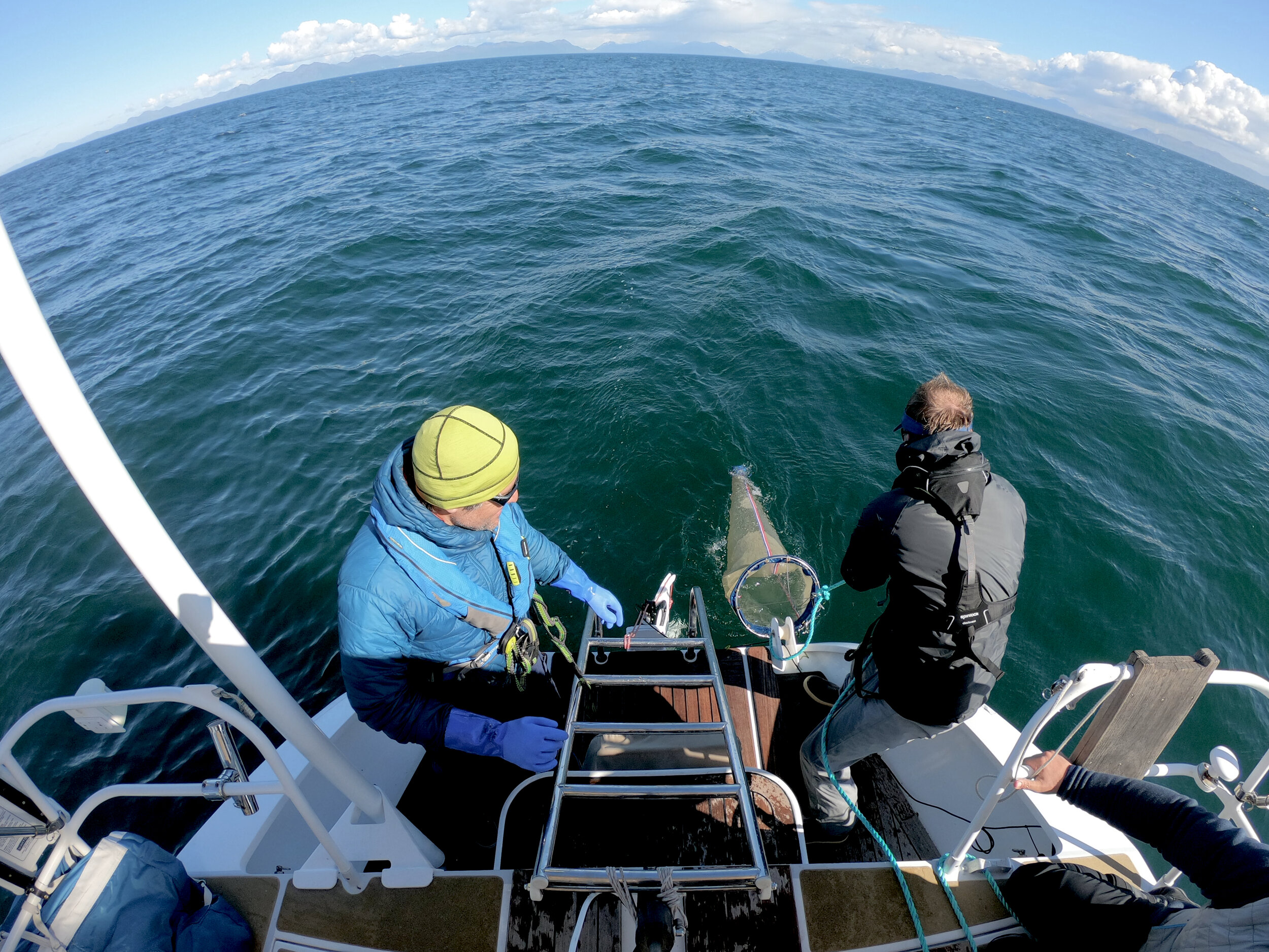
A mission to produce a global genomic atlas of the world’s oceans providing critical information for planetary health, evolutionary and fundamental biology as well as biomedicines of the future.
The Mission
The Ocean Genome Atlas Project (OGAP) aims to collect, classify, sequence and map the genomic information of organisms representing at least 80% of the extant marine species worldwide. Deploying a fleet of advanced but cost effective research vessels to transect our oceans over the coming decades, OGAP will allow access to all of our Blue Planet to hundreds of scientists. The resulting Ocean Genome Atlas will be a global 3D genomic atlas of the world’s oceans at single-cell resolution, providing critical information for planetary health, evolutionary and fundamental biology as well as biomedicines of the future. The Atlas will be a public database available to researchers and institutions across the globe. Time is of the essence given accelerating species extinction with estimates that 50% of existing biodiversity could vanish within a few generations.
The Laboratories, Vessels & The Voyages
Over the past seven years, OGAP has sailed over 15,000 nm across the North Pacific and the length of the Atlantic from Europe to Patagonia on all-oceans expedition vessels. Building on these operational lessons, OGAP purchased and has redesigned a 65’ aluminum cutter which will be a first-in-class vessel that will allow multiomic genomic sequencing at sea.
Upon completion, the Sailing Research Vessel (SRV) Icelos will undertake an initial five year circumnavigating survey after sea trials, laboratory testing and calibration in the North Atlantic. The SRV will be operated by professional sailing crews while scientist crews will be drawn from a number of universities and research institutions. Local support vessels will accompany the SRV on near coastal work to expand crew accommodations and increase laboratory output.
Sailing Research Vessels (SRVs) allow dramatically lower build and operating costs than contemporary research vessels provifing hundreds of scientists to access the most remote regions of the world. These SRVs will be the first in class vessels with the capability to conduct full-scale molecular and sequencing profiling, imaging and documentation at sea. OGAP has also designed and refit a laboratory van allowing for near coastal work in conjunction with smaller vessels at very low daily operating costs.
The OGAP scientific mission is inspired by and modeled on the voyages of the Beagle, HMS Challenger and the U.S. Exploring Expedition. Each voyage resulted in an explosion of scientific knowledge of the oceans. The genesis of evolutionary biology, marine science and the Smithsonian respectively sprung from each of these expeditions. While all of the world’s oceans have been surveyed and sampled over the past three centuries and more, the voyage of SRV Icelos and other OGAP vessels will be the first to create a true genomic atlas of marine life.
Using advanced nanotechnologies, OGAP will decipher the composition of millions of organisms down to individual cells at virtually any oceanic location and deploy artificial intelligence to process the resulting massive datasets to target predictions of living forms and functions. The resulting Ocean Genome Atlas (OGA) will be an unbiased genomic blueprint of the global biodiversity of the world’s oceans at a resolution never achieved to date: from cells to ecosystems.
OGAP has assembled a state-of-the-art genomic mobile laboratory—the first of many to be deployed at sea and on shore. These mobile laboratories are designed to be capable of deep transcriptome, genome and metagenomic sequencing, metabolomic and proteomic microanalyses allowing for the:
Discovery and classification of potentially millions of novel biologically active molecules that could be used as prototypes for future drug development.
Tracing the evolutionary history of previously unknown species, cells and tissues needed to understand present and predict future traits while also revealing patterns of interactions between organisms across multiple marine environments.
Documentation of biodiversity levels yielding a baseline of global marine life including plankton food webs through the metagenomic single-cell analysis of many thousands of planktonic, pelagic and benthic organisms.
OGAP and its collaborators hope to increase the knowledge about the world’s oceans multi fold including our understanding of enigmatic diversity of marine organisms as well as genomic information critical for the planetary health and biomedicines of the future.
Time is of the essence. The grave danger of climate change could result in the loss of millions of unique biological experiments conducted over 3.5 billion years of biological evolution. With timely and extensive surveying, OGAP will preserve this biological heritage of our blue planet in perpetuity.
The Science & The Atlas
OGAP is partnering with:
scientific institutions
biotech companies
genomic data scientists
cartographers
maritime professionals and associations
ocean voyagers
fishers
to gather, process, sequence and database the millions of organisms required to create a high resolution genomic atlas of the oceans.
Please contact us to discuss collaboration.
Get Involved
“We are at a critical juncture for life on earth. We must combine our most powerful cell-specific and integrative genomic technologies, AI enhanced supercomputing power and advanced vessel design and fabrication to gather the genomic data from the unique experiments conducted by Nature over 3.5 billion years. We aim to truly understand the oceans and life on our planet and preserve this critical information and our planetary heritage for the generations to come.”
Dr. Leonid Moroz, OGAP Co-Founder and Scientific Advisor
Contact Us
Email: info@ogapvoyage.org




